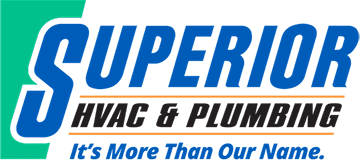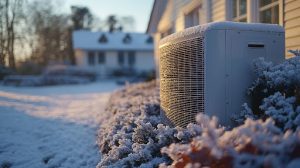As temperatures drop, homeowners everywhere are cranking up their heating systems. But if you’re not keeping up with regular preventative maintenance for your HVAC systems, you could be setting yourself up for higher heating costs, unnecessary hassle, and unexpected repairs. This blog will explore which tasks are essential, as well as the benefits of regular care. By committing to routine home maintenance duties like air filter replacements, drain line inspections, and seasonal tune-ups, you’ll keep your system running efficiently, improve its longevity, and ensure that the air quality in your home stays top-notch.
Why Regular HVAC Maintenance Matters
HVAC systems are hardworking pieces of equipment. They heat and cool your home year-round, making comfort a priority. However, neglecting regular maintenance can lead to a cascade of problems. So how do you maintain your HVAC system? Here are the most important tasks to integrate into your schedule:
1. Air Filter Replacements: Small Effort, Big Rewards
One of the easiest and most impactful steps in HVAC maintenance is replacing the air filter. A clogged or dirty filter forces your HVAC system to work harder, reducing efficiency and increasing energy costs. Over time, this added strain can lead to system breakdowns.
Why it’s important:
- Keeps air flowing smoothly through your heating and cooling system.
- Reduces energy consumption by up to 15%.
- Improves indoor air quality by trapping dust, allergens, and pollutants.
How often to replace: Most filters should be replaced every 1-3 months, depending on factors like filter type and whether you have pets or allergies. It’s sometimes easier and more cost-effective to buy them in packs so that you always have one at the ready!
RELATED: How to Improve Indoor Air Quality With an Air Filtration System
2. Drain Line Inspections: Prevent Moisture Mishaps
Your HVAC’s drain line removes the condensation produced during its operation. Over time, this line can become clogged with dirt, algae, or mold, leading to leaks or even water damage in your home.
Why it’s important:
- Prevents water buildup that can damage your HVAC system or surrounding areas.
- Reduces the risk of mold and mildew growth, which can impact air quality.
What to do: Check the drain line for clogs every few months. If you find bacteria, algae, mold, or other debris, pour a cup of vinegar in. Let it sit for 30 minutes and then flush it with a solution of water to clear it.
3. Seasonal Tune-Ups: Professional Care for Peak Performance
While homeowners can handle many maintenance tasks, scheduling a professional HVAC tune-up twice a year – in the spring and fall – is crucial. HVAC technicians perform detailed inspections, clean essential components, and identify potential issues before they become costly problems. Plus, it’s smart to test the system with an on-site professional to ensure it’s working before you try to start it during the coldest day of the season and find out that it isn’t.
Why it’s important:
- Ensures your system is ready to handle peak heating and cooling seasons.
- Improves energy efficiency and reduces heating costs.
- Extends the lifespan of your HVAC system by addressing wear and tear.
Key areas covered in a tune-up:
- Checking refrigerant levels.
- Cleaning coils and fans.
- Inspecting electrical connections and components.
- Testing the thermostat for accuracy.
4. Additional Homeowner Checks to Keep in Mind
In addition to air filter replacements and drain line inspections, there are other simple tasks that homeowners can perform to maintain their HVAC systems:
- Inspect vents and registers: Ensure that they are unobstructed by furniture or debris to allow for proper airflow.
- Seal ducts and gaps: Leaky HVAC ducts can cause up to 30% of air to escape, leading to higher energy bills. Sealing these gaps keeps your system efficient.
- Monitor thermostat settings: A programmable or smart thermostat can help to maintain consistent temperatures and lower heating costs.
Avoid Costly Repairs Down the Road
Skipping HVAC preventative maintenance may save time in the short term, but it often leads to expensive repairs or even system replacements. Similar to ignoring the debris that’s clogging your home plumbing, the ultimate costs of a fix will be far worse than the cost of regular checks. For example, neglecting a simple task like replacing an air filter could result in a frozen evaporator coil or a burned-out motor – repairs that can cost hundreds, if not thousands, of dollars!
Good Maintenance Equals Better Air Quality
Beyond saving money, regular HVAC maintenance ensures that your indoor air quality remains healthy. Clean filters and well-maintained components prevent the circulation of dust, allergens, and other pollutants in your home. For families with allergies or respiratory conditions, this benefit alone makes preventative maintenance a must.
RELATED: Understanding Your HVAC System: A Guide for Homeowners
Maintain Your HVAC System With Superior HVAC & Plumbing
HVAC preventative maintenance isn’t just another chore; it’s an important investment in your home’s comfort, air quality, and energy efficiency. Simple steps like replacing air filters, inspecting drain lines, and scheduling seasonal tune-ups can extend the life of your heating and cooling system, reduce hassles, and keep your wallet happy.
So the next time you wonder, “How do I maintain my HVAC?” remember that a little effort now can save you a lot of hassle later. If you haven’t scheduled a winter tune-up yet, reach out to Superior HVAC & Plumbing today. Don’t wait for a breakdown to prioritize your HVAC system – perform your home maintenance routine now and enjoy a warm, worry-free winter season.

